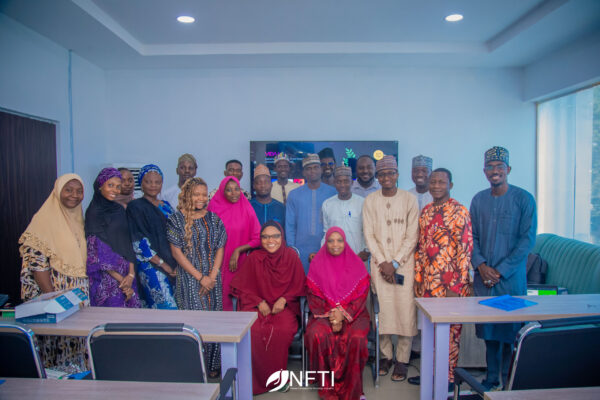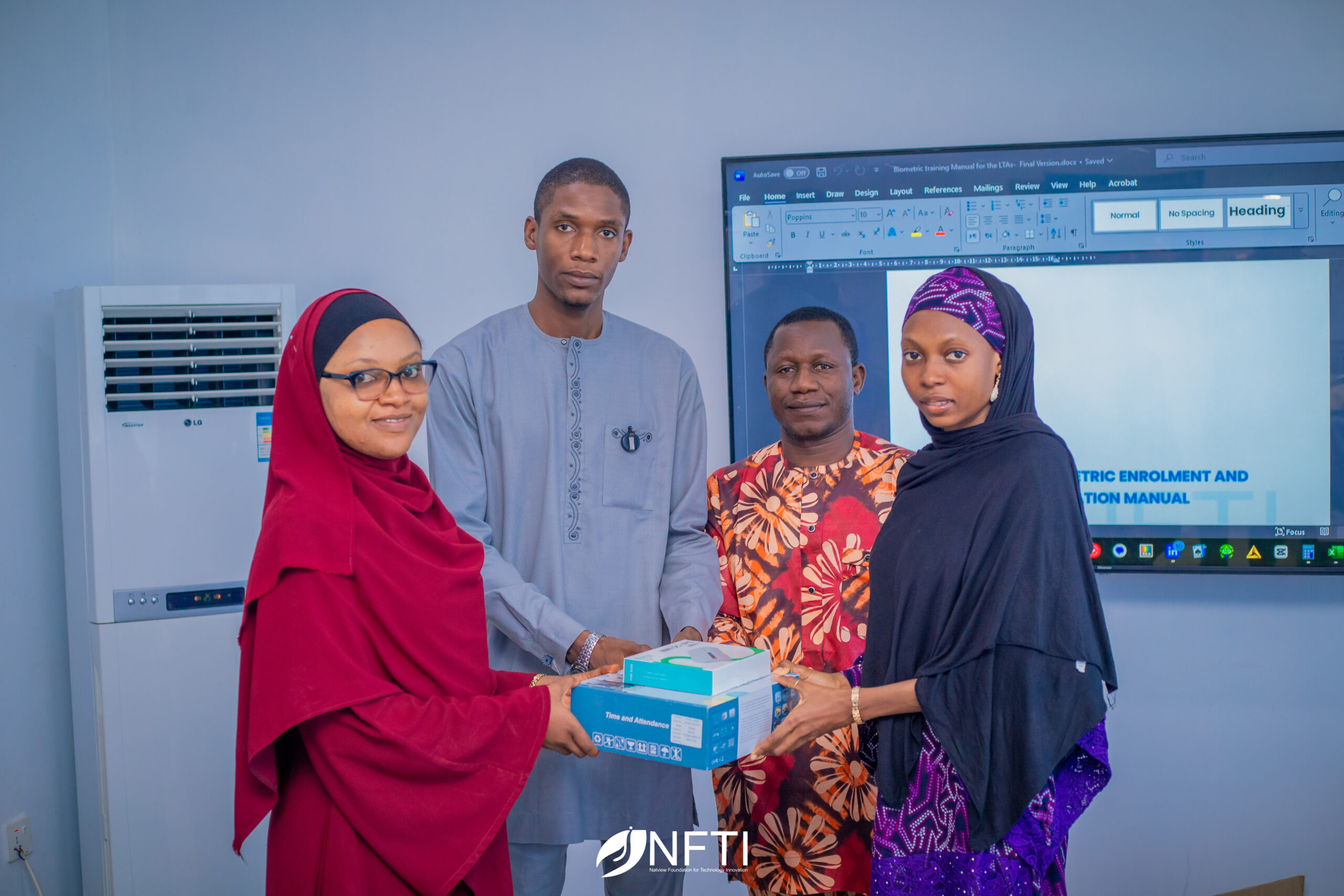The Kaduna State Primary Health Care Board (SPHCB), with technical support from the Natview Foundation for Technology Innovation (NFTI), has commenced the pilot phase of the Human Resource for Health Management Information System (HRHMIS) Biometric Program across 23 selected Primary Health Centres (PHCs) in the state. This initiative, supported under the State’s PHC Memorandum of Understanding (MoU), is a state-driven effort to improve accountability, monitor workforce attendance, and enhance service delivery through the integration of biometric technology. The biometric implementation is also part of a broader learning agenda to assess feasibility for statewide scale-up, following high-level engagements with the Commissioner of Health, Head of Service, and relevant labour unions.
The one-day orientation and deployment session began with opening remarks from Hajiya Rukkaya I. Arab, Deputy Director of Transport and Logistics at SPHCB, who encouraged participants to approach the assignment with focus and commitment. The meeting continued with an in-depth training on the HRHMIS Biometric System, designed to equip participants with the technical knowledge needed for successful implementation. The session featured practical demonstrations on the enrollment process, device handling, and operational troubleshooting. Participants, including 23 Local Technical Assistants (LTAs) recruited for this phase, were taken through hands-on sessions to ensure they understood the installation, maintenance, and day-to-day management of the biometric systems.
Each of the 23 PHCs designated as Centers of Excellence received biometric devices, alongside a manual handover that transferred full implementation responsibility to the LTAs. The biometric pilot is intended to capture and integrate staff profiles into the HRHMIS, enabling accurate attendance tracking, real-time workforce monitoring, and ultimately paving the way for a biometric-linked payroll system. These findings will also offer valuable insights into staff productivity and contribute to data-informed decision-making across the health sector.
The session ended with closing remarks by Usman Hussaini Jaja, who appreciated the participants’ readiness to take on the task and emphasized the significance of their role in strengthening service delivery and improving life expectancy across communities. He urged them to remain diligent, seek support when needed, and stay committed to the goals of the program. The biometric implementation is expected to significantly improve transparency and accountability in the management of health personnel and serve as a model for potential expansion to other PHCs in the state.



